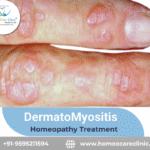Understanding Vaginal Infections: Causes, Symptoms, and Treatment
Vaginal infections are one of the most common health issues that women face, yet they are often not openly discussed due to social stigma or discomfort. These infections can range from mild irritations to serious conditions requiring medical attention. This blog post aims to provide a clear, straightforward explanation of vaginal infections, their causes, symptoms, and available treatments, including a real-life case study to help understand the topic better.
What Is a Vaginal Infection?
A vaginal infection occurs when the normal balance of bacteria and yeast in the vagina is disrupted. This imbalance can lead to an overgrowth of harmful microorganisms, causing uncomfortable symptoms like itching, burning, or unusual discharge.
Types of Vaginal Infections
There are several types of vaginal infections, with the most common being:
- Bacterial Vaginosis (BV)
- Caused by an overgrowth of bacteria.
- Symptoms include grayish-white vaginal discharge with a fishy odor.
- Vaginal Yeast Infection
- Resulting from the overgrowth of Candida, a type of yeast.
- Symptoms include intense vaginal itching, thick white discharge (like cottage cheese), and burning sensations.
- Trichomoniasis
- A sexually transmitted infection caused by a parasite.
- Symptoms may include frothy greenish-yellow discharge and irritation during urination or intercourse.
- Vaginal Cancer Symptoms
- Rare, but symptoms such as abnormal bleeding, foul-smelling discharge, and pelvic pain should not be ignored.
Symptoms of Vaginal Infections
The symptoms can vary depending on the type of infection, but the most common ones include:
- Vaginal itching or burning sensation.
- Unusual vaginal discharge that may change in color, consistency, or smell.
- Pain during urination or sexual intercourse.
- Redness, swelling, or irritation around the vaginal area.
If you notice persistent or worsening symptoms, it’s important to consult a healthcare professional.
Causes of Vaginal Infections
Understanding what causes vaginal infections can help prevent them. Some of the common causes include:
- Imbalance in Vaginal pH
- The vagina naturally maintains a slightly acidic pH to keep harmful bacteria in check. Using harsh soaps or douching can disrupt this balance.
- Use of Antibiotics
- Antibiotics can kill beneficial bacteria, leading to an overgrowth of yeast.
- Poor Hygiene Practices
- Using non-breathable underwear, not changing tampons regularly, or wiping from back to front can introduce harmful bacteria.
- Hormonal Changes
- Pregnancy, menopause, or oral contraceptives can alter vaginal flora.
- Unprotected Sexual Activity
- Introducing new bacteria or parasites through sexual intercourse.
Real-Life Case Study: Overcoming a Vaginal Yeast Infection
Meet Priya (name change), a 28-year- who started noticing symptoms like intense vaginal itching, burning, and thick white discharge. Initially, she ignored the symptoms, thinking they might be due to sweating or irritation from tight clothing. However, when the symptoms persisted for over a week, she decided to consult a gynecologist.
Diagnosis:
Priya was diagnosed with a vaginal yeast infection caused by Candida overgrowth. The doctor explained that her recent course of antibiotics for a throat infection might have disrupted her vaginal flora.
Treatment Plan:
- Antifungal Medication: She was prescribed an antifungal cream to apply locally.
- Hygiene Tips: Priya was advised to avoid synthetic underwear and switch to cotton fabrics.
- Dietary Changes: She included more probiotics in her diet, like yogurt and fermented foods, to restore healthy bacteria.
Outcome:
Within ten days, Priya’s symptoms subsided, and she felt more comfortable. She also learned the importance of addressing symptoms early to prevent complications.
How to Treat Vaginal Infections
The treatment depends on the type of infection:
- For Bacterial Vaginosis:
- Antibiotics like metronidazole or clindamycin are commonly prescribed.
- For Vaginal Yeast Infection:
- Over-the-counter antifungal creams, suppositories, or oral medication like fluconazole are effective.
- For Trichomoniasis:
- Antibiotics like metronidazole or tinidazole are used to treat this parasitic infection.
- When Vaginal Cancer Symptoms Arise:
- If symptoms like unexplained bleeding or unusual discharge persist, further tests like biopsies or imaging are recommended.
It’s crucial to follow your healthcare provider’s guidance and complete the prescribed treatment, even if symptoms improve.
Prevention Tips for Vaginal Infections
Preventing vaginal infections often involves simple lifestyle changes:
- Practice Good Hygiene
- Wash the vaginal area with warm water and a mild soap. Avoid scented products or douching.
- Choose the Right Underwear
- Opt for breathable fabrics like cotton. Avoid tight-fitting clothing that traps moisture.
- Maintain a Balanced Diet
- Include probiotics to support healthy bacteria levels.
- Be Cautious with Antibiotics
- Only use antibiotics when necessary and follow your doctor’s instructions.
- Stay Hydrated
- Drinking plenty of water helps flush out toxins and maintain overall health.
- Practice Safe Sex
- Use protection to reduce the risk of sexually transmitted infections.
Addressing Myths and Misconceptions
There are several myths about vaginal infections that can lead to unnecessary anxiety or delayed treatment:
- Myth 1: Only sexually active women get vaginal infections.
- Truth: Any woman can develop a vaginal yeast infection or BV, regardless of sexual activity.
- Myth 2: Washing more frequently prevents infections.
- Truth: Overwashing or using harsh products can disrupt the natural pH, increasing infection risk.
- Myth 3: All vaginal discharge is a sign of infection.
- Truth: Normal discharge varies in amount and consistency throughout the menstrual cycle. Abnormal discharge is often accompanied by other symptoms like itching or odor.
Final Thoughts
Vaginal infections are common but manageable health issues. With proper knowledge, timely treatment, and preventive care, you can maintain good vaginal health and avoid discomfort. Always listen to your body, and don’t hesitate to reach out to a healthcare provider if you experience persistent symptoms.
By taking small yet effective steps, you can ensure that you’re taking care of your intimate health. Remember, it’s perfectly okay to discuss these issues openly—there’s no shame in seeking help or educating yourself about your body!
FAQs
- What is the most common symptom of a vaginal infection?
- Common symptoms include vaginal itching, abnormal discharge, and a burning sensation.
- Can I treat a vaginal infection at home?
- Mild infections like vaginal yeast infections can be treated with over-the-counter antifungal creams. However, if symptoms persist, consult a doctor.
- Is vaginal discharge always a sign of infection?
- No, normal discharge varies throughout the menstrual cycle. However, changes in color, smell, or consistency could indicate an infection.
- How can I prevent vaginal infections?
- Practice good hygiene, wear breathable underwear, avoid harsh products, and maintain a healthy diet.
- What are the early signs of vaginal cancer symptoms?
- Early signs include abnormal bleeding, foul-smelling discharge, and pelvic pain. Consult a healthcare provider for evaluation if you notice these symptoms.
Homeo Care Clinic offers a holistic approach to treating the disease. The remedies mentioned above can treat the underlying causes of the condition and offer relief from the discomfort. However, it is important to consult a qualified homeopathic practitioner for the correct dosage and duration of treatment. Homeo Care Clinic provides comprehensive care for various ailments, and offers customized treatment plans based on individual requirements.
To schedule an appointment or learn more about our treatment, please visit our website or give us a call +91 9595211594 our best homeopathy doctor will be here to help.
Follow us on Facebook, Twitter, and Instagram for valuable insights into the world of homeopathy and holistic health.
Facebook – https://www.facebook.com/homeocareclinicpune
Instagram – https://www.instagram.com/homeocareclinic_in
Website – https://www.homeocareclinic.in
Success Stories of Patients – homeocareclinic.in/category/case-study
YouTube Patient Review – https://www.youtube.com/playlist?list=PL__SnPQCl4WLPFV7iJOdQxn4YaB6IkPHJ
LinkedIn – linkedin.com/company/homeo-care-clinic
Chat with a best homeopathic doctor privately
If you have any queries regarding your disease or any symptoms, click to send a WhatsApp message. Our best homeopathy doctor will be happy to answer you.
Book an Appointment
If you want to visit our clinic, click to book an appointment.
Online treatment
If you are a busy professional, or you are living in a remote town or city, with no best homeopathic doctor near you, Click to start an online homeopathic treatment with the world’s exclusive, most experienced and best homeopathic clinic, managed by Dr. Vaseem Choudhary world-renowned homeopathic doctor expert







